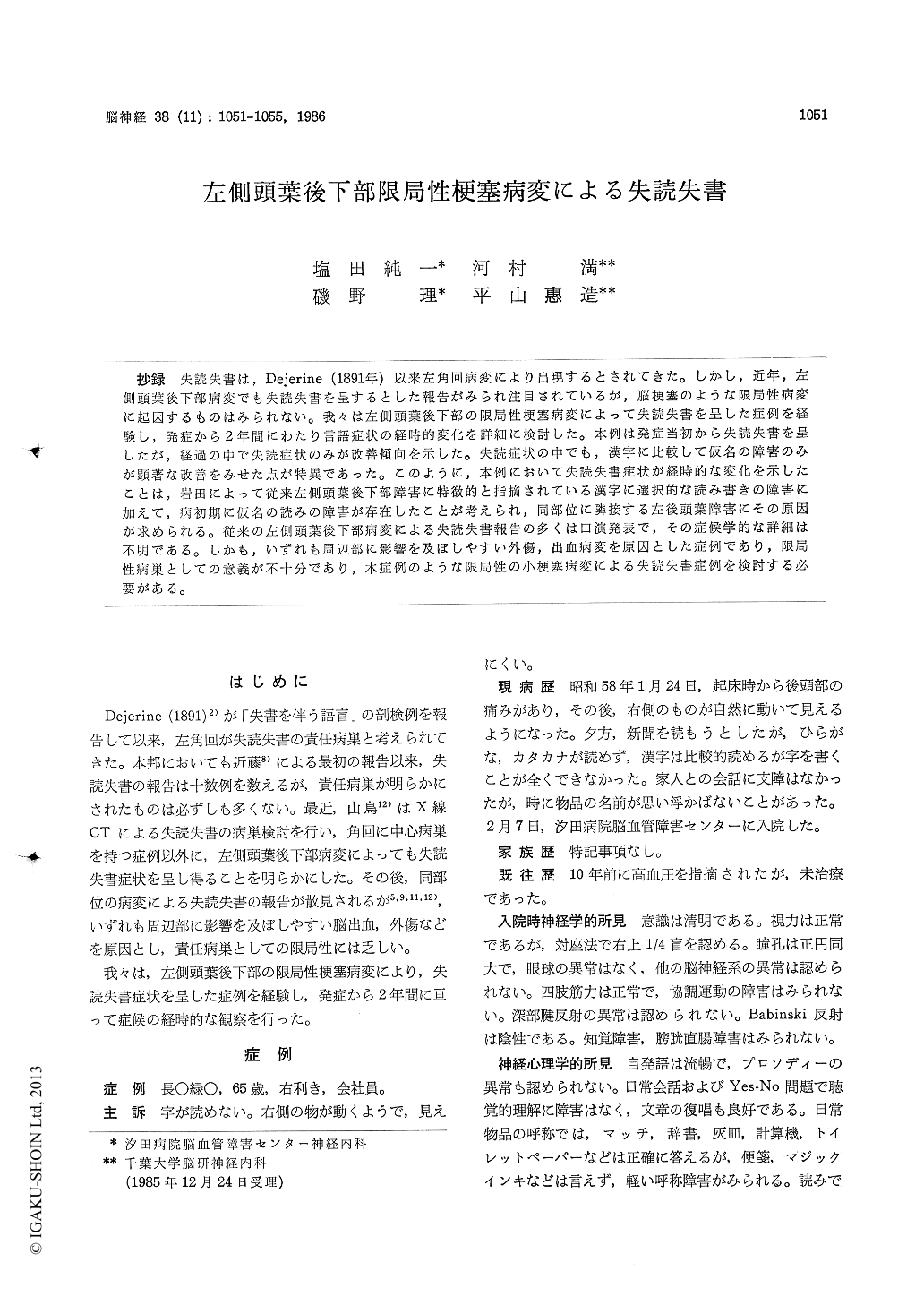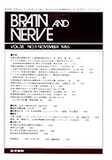Japanese
English
- 有料閲覧
- Abstract 文献概要
- 1ページ目 Look Inside
抄録 失読失書は,Dejerine (1891年)以来左角回病変により出現するとされてきた。しかし,近年,左側頭葉後下部病変でも失読失書を呈するとした報告がみられ注目されているが,脳梗塞のような限局性病変に起因するものはみられない。我々は左側頭葉後下部の限局性梗塞病変によって失読失書を呈した症例を経験し,発症から2年間にわたり言語症状の経時的変化を詳細に検討した。本例は発症当初から失読失書を呈したが,経過の中で失読症状のみが改善傾向を示した。失読症状の中でも,漢字に比較して仮名の障害のみが顕著な改善をみせた点が特異であった。このように,本例において失読失書症状が経時的な変化を示したことは,岩田によって従来左側頭葉後下部障害に特徴的と指摘されている漢字に選択的な読み書きの障害に加えて,病初期に仮名の読みの障害が存在したことが考えられ,同部位に隣接する左後頭葉障害にその原因が求められる。従来の左側頭葉後下部病変による失読失書報告の多くは口演発表で,その症候学的な詳細は不明である。しかも,いずれも周辺部に影響を及ぼしやすい外傷,出血病変を原因とした症例であり,限局性病巣としての意義が不十分であり,本症例のような限局性の小梗塞病変による失読失書症例を検討する必要がある。
There have been several reports on alexia with agraphia due to hemorrhage or trauma in the infe-rior posterior region of the left temporal lobe sinceYamadori (1982) first reported a case of cerebral hemorrhage. We presented the first case of alexia with agraphia due to a circumscribed infarct in the inferior posterior region of the left temporal lobe.
A 65-year-old right-handed man had an acute onset of inability to read Japanese "kana" letters and to write any letters. He had no difficulty in speaking or understanding.
Neurological examination on admission was nor-mal except for homonymous quadrantanopsia in the right upper field.
Neuropsychological findings: Spontaneous speech was fluent without dysprosody. There were no disturbances in auditory understanding or in repe-tition. He could read Japanese "kanji" characters correctly, however, he could not read any "kana" letters. Writing was also disturbed severely even as to his address, name or telephone number. Cal-culation was also difficult. There were no disturb-ances in naming colors, no ideomotor or construc-tional apraxia nor visual agnosia.
X-ray computed tomography (CT) scan showed a faint low density area with ring enhancement sug-gesting a cerebral infarct in the inferior posterior region of the left temporal lobe.
Patient's hospital course was characterized by a marked improvement of alexia, especially of "kana" letters as compared with that of "kanji" characters.
Dissociative improvement of alexia compared with agraphia in this case could be explained by the fact that the lesion was in close contact with the occipital lobe and that he also had pure alexia in the early stage.

Copyright © 1986, Igaku-Shoin Ltd. All rights reserved.


